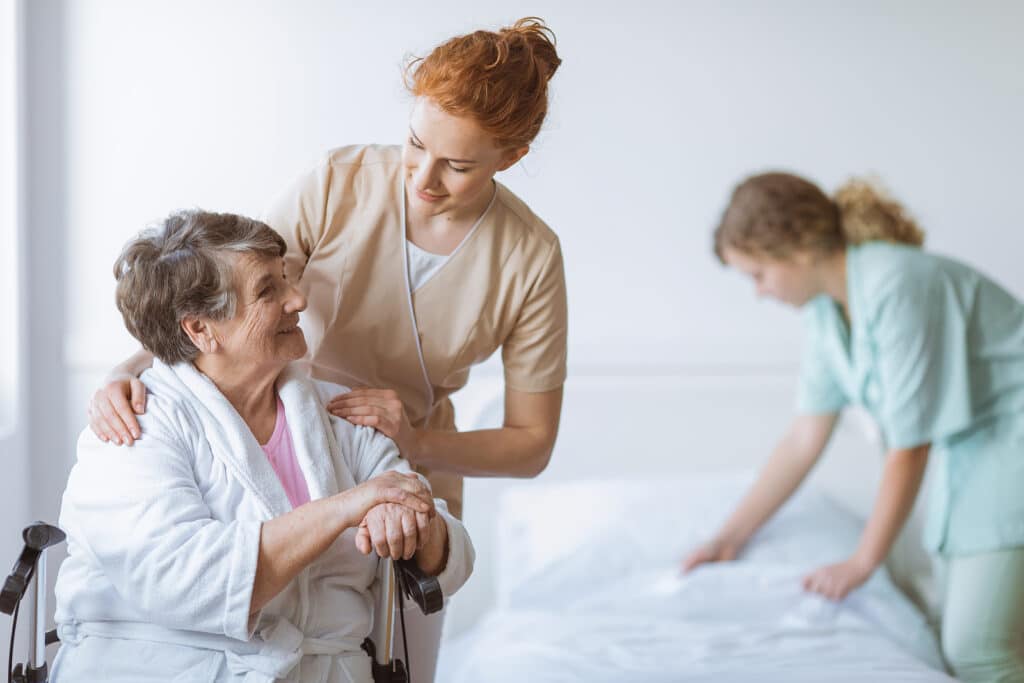After a stroke, your elderly loved one may face challenges communicating as he recovers. He might struggle to produce sound as he did before or have difficulty understanding what others say. Providing effective stroke care at home is essential, especially since one-third of stroke survivors experience communication issues for months or even years after their stroke.
Table of Contents
ToggleFive Communication Problems Stroke Survivors May Have
Your loved one may experience one or more of these issues, which can come and go, but with proper stroke care at home services, most of them will usually improve over time.
- Cognitive difficulties: Memory, thinking, and judgment can all be affected by a stroke. If affected, your loved one may struggle to concentrate on a conversation or remember what was just discussed. He might also respond in a manner that is inappropriate or not related to the topic at hand.
- Dysphonia: This condition occurs when a person develops weakness or paralysis in the muscles in and around the vocal cords. Your loved one’s voice might change, and he might only be able to speak in a whisper, or his voice might become suddenly rough or hoarse. Occasionally, a person may not be able to make any sound at all.
- Aphasia: When aphasia occurs, your loved one could struggle with talking, reading, writing, or understanding other people when they speak. It can happen even when your loved one’s ability to think, remember, and make decisions seems unaffected by his stroke.
- Apraxia: Apraxia is a condition in which your loved one has difficulty coordinating the muscles needed for clear speech. His brain will struggle to plan the many movements needed to talk, making it hard to say words correctly.
- Dysarthria: Sometimes, a stroke can lead to weakness or paralysis in the muscles used for speaking. When this occurs, your loved one’s speech may become slurred and difficult to understand.
Communication Problems Can Affect Mental Health
Not being able to communicate clearly can be especially challenging for your loved one during stroke care at home. It can impact their daily quality of life and cause additional emotional distress.
As they work on regaining communication skills, they might feel isolated or struggle to express their needs and desires. This discomfort can lead to withdrawing from social interactions, which may result in loneliness or even depression.
Providing effective stroke care at home involves professional caregivers supporting your loved one emotionally and helping them rebuild their communication skills to enhance their overall well-being.
Getting Additional Stroke Care at Home
The path to recovery from a stroke can be a long and laborious one. Having help with stroke care at home services can help both you and your loved one find the support you need to help him focus on what’s important to him. A trained provider who has experience with stroke care at home can help your loved one manage his home needs so he can take the time he needs to properly focus on all aspects of his recovery, including regaining those communication skills.
Stroke care at home providers can also be a valuable resource for caregivers, assisting with meal preparation, grooming needs, and personal care tasks, allowing the caregiver to conserve energy and stamina to support their loved one on their recovery journey.
Providing exceptional Stroke Care at Home in Reston, VA, for seniors and families in the Northern Virginia area, including Arlington, Alexandria, McLean, Reston, Burke, Ashburn, Centreville, Springfield, Manassas, and Oakton. Call today to speak with our caring staff: (703) 272-8838.
Sources:
- Training of the Month: Lymphedema - May 15, 2025
- Career and Opportunities Fair - May 15, 2025
- Vienna Wellness and Safety Expo - May 15, 2025




